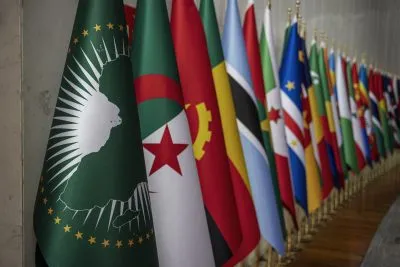This article was produced with the support of IATF
One of the key constraints to intra-African trade has been the ability to pay for goods in local currency. A trader in Ghana wanting to purchase leather from Burundi, or an artisan in Tunisia wanting to purchase cotton from Egypt would have to go through time consuming and often onerous procedures to pay his counterpart in US dollars or euros, with the local banks having to transact through corresponding banks.
This meant extra costs, longer lead times and unwieldy administrative processes. A problem which was compounded when international banks stopped offering correspondent banking services especially to smaller African countries post financial crisis of 2008-9.
The Pan-African Payments and Settlements Platform which officially launched in late September is a first step in trying to overcome the cross-border and cross-currency payments quagmire.
It is a project that has been three years in the making. The project piloted in the West African Monetary Zone (WAMZ) in six countries with different currencies. They were chosen to demonstrate that the platform could work across multiple currencies, different regulatory environments and different languages, that is that could overcome the complexities one encounters in cross-border payments and using a sample that could represent the whole continent.
The project involved coordination between central banks as well as ensuring the different IT systems could speak to each other and fully integrated.
To ensure settlement finality, Afreximbank has approved $500m to support the clearing and settlement of these cross-border transactions.
The platform, or PAPSS as it is affectionately known, expects to be expand its operations continent-wide and the teams behind the platform are in talks with other Regional Economic Communities, including COMESA, SADC and the EAC.
Afreximbank estimates that a continent-wide platform, leveraging a multilateral net settlement system can save the continent more than $5bn in payment transaction costs per year.
Instantaneous transactions
Mike Ogbalu, CEO of PAPSS, says that transactions are instantaneous: “An account will be debited, passing through our platform and the beneficiary will get the value instantly in his own local currency.”
In designing the platform, Ogbalu says, they have anticipated large volumes, and hence the need for the technology to be robust, secure and leading edge. During the testing and piloting stages, they have set themselves a target for all transaction to be settled in under 120 seconds but the average transaction to-date has taken less than 10 seconds.
The platform is also designed to support both low and high value transactions. The size of the transaction may be limited, Ogbalu explains, by the regulator or by the financial services provider with whom the traders interact.
Deputy CEO John Bosco Sebabi adds that the objective of PAPSS is for all players operating across the whole financial services spectrum to leverage the PAPSS infrastructure, including banks, fintechs and mobile money providers.
According to Ogbalu, PAPSS will actually help fintechs and other innovators to scale up their businesses and ideas continent wide by providing them a platform that will enable them to access new markets without having to worry about how those transactions will settle.
For Sebabi, removing the need for correspondent banking will also save between three and five days. This has helped PAPSS gain traction with different players in the region and they are in discussions with most of the Central Banks in Africa today.
The PAPSS project has been championed by the Afreximbank and the African Continental Free Trade Agreement Secretariat (AfCFTA).
Omar Ben Yedder was in conversation with Mike Ogbalu, CEO of PAPSS and John Bosco Sebabi, Deputy CEO of PAPSS. The Full Interview will appear in the November edition of African Banker.
To register for the Intra African Trade Fair and meet the teams behind PAPSS and senior decision makers from the African business community, click here.
 Sign in with Google
Sign in with Google 



